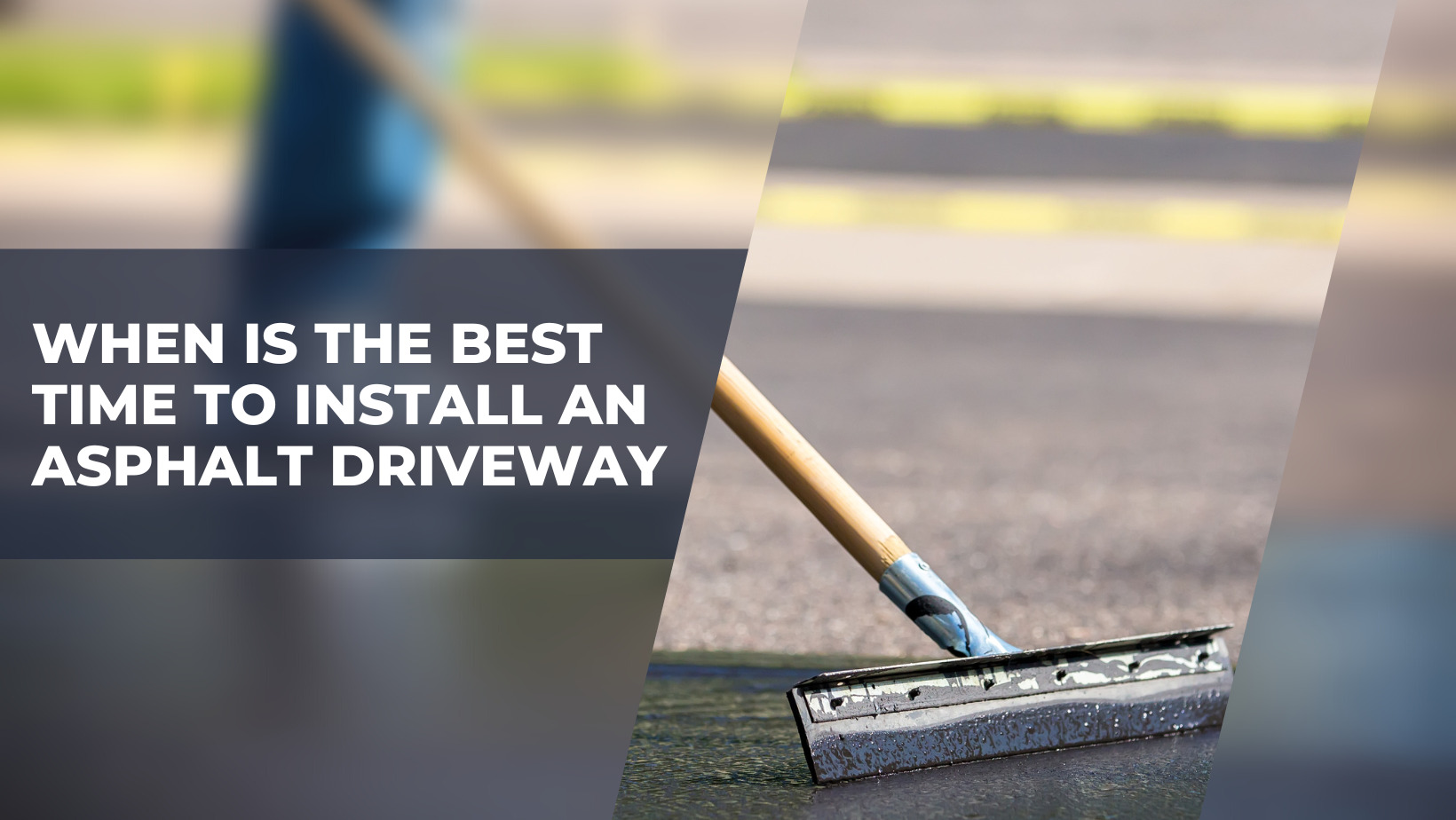Customers who need pavement frequently inquire about the ideal season for paving jobs. Paving a parking lot or driveway may involve a substantial financial outlay. Paving clients want the greatest project results and to position themselves for success.
This necessitates taking into account estimates of temperature and other environmental conditions. The temperature is one of the most important considerations while constructing a new asphalt driveway.
Therefore, a fresh installation should always be planned when suitable weather. The team has less time due to the cooler temperatures to work, compact, and smooth the asphalt. A driveway that is uneven and erratic could result from using cold material. The weather is not the only consideration, however.
Table of Contents
Why Does Time Matter For Asphalt Driveway Installation?
Hot mix asphalt is more controllable and flexible for longer in warmer climates. Hot mix asphalt needs to maintain a temperature to compact and set. The best results can be achieved when the asphalt is laid, distributed, and leveled in warm weather before it cools.
Your asphalt installers have all the time they need to complete the best work possible in warmer weather. The spring and summer seasons are ideal for paving asphalt. Even at 50 degrees, it is possible to pour asphalt, but the results won’t likely be the best. Warm weather is ideal for paving.
Weather variables like wind and precipitation are other aspects that must be considered. As asphalt is being laid, strong breezes can chill it. If the surrounding temperature is too close to that low degree, this could result in serious issues.
What Is The Best Time To Re-Coat Or Maintain Asphalt Driveway?
Your current asphalt driveway can be ready for the winter in time for the early fall months. Before winter, any cracks in your asphalt should be fixed. Water can seep through even little gaps in a driveway and gather there.
In the event of a dip in temperature, that water will freeze and expand, enlarging the crack and allowing more water to accumulate. As a result, your driveway may sustain significant damage throughout the winter.
Your asphalt driveway’s lifespan can be greatly increased by crack sealing before the weather turns cold. To stop water from penetrating the cracks, this procedure entails completely cleaning them out and filling them with the proper asphalt mixture.
Before the weather turns chilly, a seal coating can also be done. During the winter, it will aid in preventing moisture intrusion that causes damage from freeze and thaw. Your asphalt will start to crack in the spring, which will be a sign of this.
It will greatly enhance the appearance of your driveway and increase the curb appeal, safeguarding the integrity and increasing the lifespan of your asphalt.
Why Should You Hire Professionals For Asphalt Driveway Installation?
Experience-based knowledge is incomparable and cannot be replaced. An asphalt expert will know the ideal circumstances and time for installing a new asphalt driveway. They will know how to modify and provide excellent outcomes if the circumstances are less than ideal.
To extend the cooling-off period, the hot-mix asphalt’s starting temperature can be raised if the weather is a few degrees colder than desired. The summer’s strong heat can greatly reduce the issues. Nevertheless, there may be a few disadvantages depending on how hot it is outside.
Compared to certain other building materials, asphalt absorbs heat better. This is nearly as hot as the freshly mixed asphalt we install. Around the 70-degree threshold is the perfect temperature for paving.
Right Temperature Is Essential For Appropriate Installation Of Asphalt Driveway
Managing heat during asphalt production is crucial to the quality of the final product. Some of the binders in the mixture degrade when the heat in the factory is increased to keep the temperature there constant.
This denotes a defective product with a lower shelf life. One more aspect of asphalt paving is heat loss in the truck as it travels from the manufacturer to the job site. Next is the medium’s temperature when it exits the laydown machine. It must be the ideal temperature.
The end product won’t be suitable if the wind blows or the surrounding temperature is too low to accommodate the asphalt temperature. The asphalt won’t be thoroughly compacted by the roller machines either.
Conclusion
Therefore, from early spring, when temperatures begin to rise until early fall is the ideal time of year to lay an asphalt driveway. However, when the outside temperature rises, things get simpler. Because of the heat, the asphalt paving will not be set up too quickly, giving the workers enough time to smooth it out appropriately.
Rainy weather can also make it more difficult to install asphalt since the material will take longer to set due to water absorbing.





